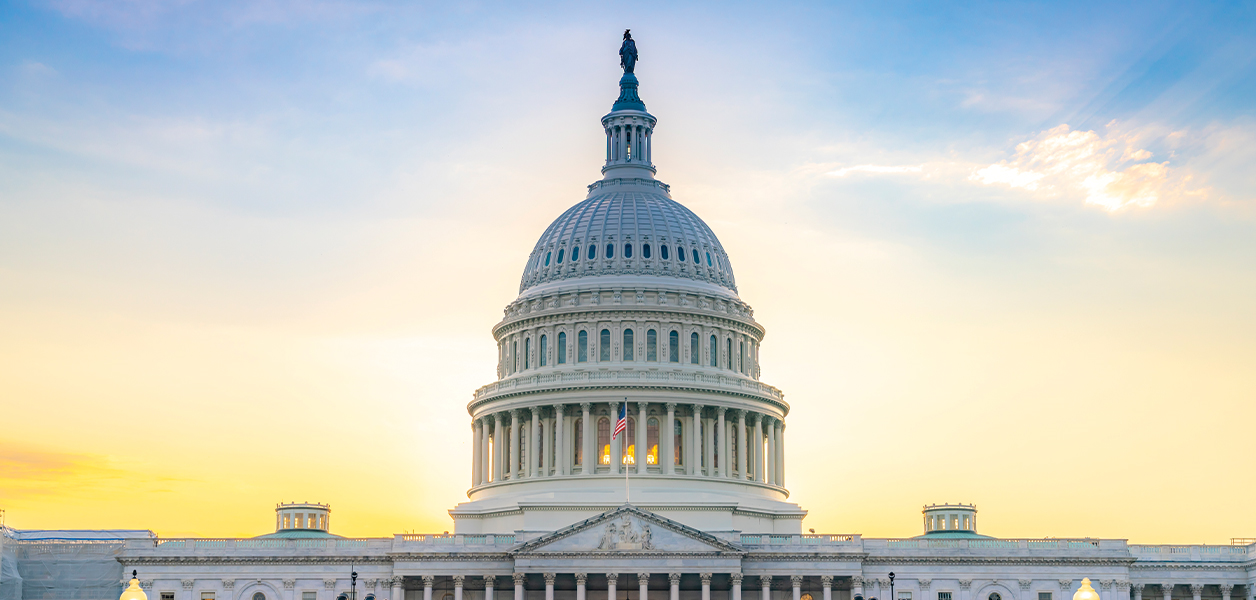President Trump moves forward regarding trade deals and additional tariffs
After concluding trade agreements with the European Union and several countries before new reciprocal tariff rates take effect, President Trump continues to move forward with additional trade policy announcements. Most notable is an Executive Order implementing revised tariff rates on numerous countries—the most significant change in U.S. trade policy in decades. Under the new policy, imports from countries with which the U.S. has a trade surplus will face a universal 10% tariff going forward. Additionally, imports from countries with which the U.S. has a trade deficit will face higher reciprocal tariffs of 15% (40 countries) or higher (26 countries) depending on the nature of the trade relationship. These tariffs on imported products originally were scheduled to take effect Aug. 1 but now will be implemented today in accordance with the Executive Order.
In addition, Trump announced increased tariffs on certain imports from Canada from 25% to 35%, citing the country’s failure to curb flows of illicit drugs over the U.S. northern border. After discussions with Mexican president Claudia Sheinbaum, Trump announced an agreement with Mexico to extend for 90 days 25% tariffs on certain Mexican imports announced earlier this year because of flows of fentanyl and other drugs across the U.S. southern border. The existing 50% tariff on imports of Mexican steel, aluminum and copper remain in place while negotiations between the two countries continue toward reaching a long-term agreement. Additionally, the U.S. continues negotiations with China toward a more comprehensive trade deal as an existing short-term arrangement is scheduled to expire Aug. 12.
Most recently, the White House announced the U.S. will increase tariffs on products imported from additional countries buying energy from Russia because of Russia’s war against Ukraine. Trump further announced tariffs on goods from India would increase from 25% to 50% because of ongoing purchases of Russian oil. A previously announced 25% tariff on Indian imports will take effect today while the higher 50% tariff will take effect Aug. 27.
Join NRCA Power Hour to learn how the One Big Beautiful Bill affects your business
On Aug. 14, join NRCA’s government relations team for an in-depth Power Hour regarding what the One Big Beautiful Bill Act means for the roofing industry. This Power Hour will provide an overview of key provisions in the recently passed reconciliation legislation that address tax, immigration and workforce issues.
On July 4, the One Big Beautiful Bill Act (H.R. 1) was signed into law by President Trump. H.R. 1 extends and makes permanent many provisions from the Tax Cuts and Jobs Act of 2017, P.L. 115-97, while adding new provisions, including deductions to eliminate income taxes on certain overtime pay and expanding the use of 529 educational savings accounts and Pell Grants to training and certification programs. This legislation also contains provisions related to defense, border security and immigration while phasing out many clean energy tax incentives. To review how these changes could affect your business, view NRCA’s summary of the major provisions.
EPA announces reconsideration of GHG Endangerment Finding
The Environmental Protection Agency announced it will reconsider its 2009 Endangerment Finding that greenhouse gas emissions cause air pollution that endangers human health and welfare under the Clean Air Act. The original 2009 decision has led to many subsequent regulatory actions aimed at limiting greenhouse gas emissions, with major implications for energy, transportation and other sectors of the economy. The agency indicates the reconsideration of the decision “will give the public a chance to weigh in on the science, law, and policy choices at issue in the Finding.”
The reconsideration is expected to focus more on the legal arguments about the original finding than on the science of climate change. A major question will be whether the agency has clear authority under the Clean Air Act to regulate in this area, especially given more recent Supreme Court decisions, potentially creating pressure for Congress to take legislative action. As part of this effort, the EPA is also proposing to roll back tighter emissions standards for cars and light trucks that have been instituted in recent years. Other existing energy-related regulations could be targeted during the coming months or years depending on the outcome of the EPA’s reconsideration process. NRCA will be reviewing the proposal and related regulatory activity to assess potential effects on the roofing industry and broader construction sector.
DOL announces self-audit programs to strengthen compliance with federal law
The Department of Labor has announced it is launching several self-audit programs designed to help employers and other stakeholders strengthen their compliance with federal labor laws. Among these new initiatives is an expansion of the Occupational Safety and Health Administration’s Voluntary Protection Programs aimed at helping employers develop strong safety programs and lower injury rates. Another key initiative is the Payroll Audit Independent Determination program, which originally launched in 2018 to assist employers with early resolution of compliance issues under the Fair Labor Standards Act. This program was discontinued in 2021 by the Biden administration, and the updated version contains new requirements and has been expanded to include compliance resolution related to the Family and Medical Leave Act. View more information about these and other new or expanded self-audit programs.





